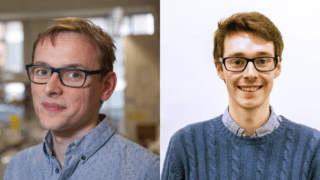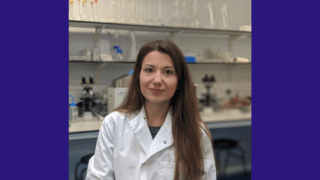Category: Interviews
Search News
Categories
Archives
Introducing Dr Diu Nguyen
29th April 2022
We would like to wish a very warm welcome to Dr Diu Nguyen who has recently joined the Barts Cancer Institute, Queen Mary University of London as a Lecturer and Group Leader. Dr Nguyen joins us from the Memorial Sloan Kettering Cancer Center in New York, USA, where she completed her postdoctoral training investigating the role of post-transcriptional regulation in normal and malignant cancer stem cells.
Read moreInternational Day of Women and Girls in Science
11th February 2022
This International Day of Women and Girls in Science, Radhisha Kohombage, an MSc student at BCI, spoke to some fellow students, to hear more about their roles, inspirations, and advice for the next generation who would like to pursue a career in science.
Read moreTurning back the molecular clock: Tracing cell lineage
6th January 2022
Researchers from Barts Cancer Institute at Queen Mary University of London, the Moffitt Cancer Center and the University of Southern California, have developed a new method that measures subtle changes to the genetic code of cells (called DNA methylation) to study the dynamics of what happens to cells within our bodies over time. The new method, published in Nature Biotechnology, provides a way to measure the birth and death of human cells, making it possible to trace cell lineage and evolution.
Read moreInvestigating new strategies to target lung cancer
6th December 2021
Recent research from Barts Cancer Institute (BCI) at Queen Mary University of London has identified a novel therapeutic strategy to target lung cancer tumours that lack the gene LIMD1. We spoke with Professor Tyson V Sharp from BCI’s Centre for Cancer Cell & Molecular Biology, who led the study with Dr Sarah Martin, to find out more about the research and the significance of the findings.
Read moreProf Nick Lemoine interviewed on Channel 4 News about long COVID
29th November 2021
During the interview, Professor Lemoine highlighted that studies being undertaken across the country aim to elucidate the mechanisms involved in long COVID, and further studies are being set up to identify treatments that will be effective against the disease.
Read moreOvercoming drug resistance in breast cancer
28th October 2021
In recognition of Breast Cancer Awareness Month, we spoke with Dr Ioanna Keklikoglou, Lecturer and Group Leader in the Centre for Tumour Microenvironment at Barts Cancer Institute, Queen Mary University of London. Dr Keklikoglou’s research focuses on understanding the molecular and cellular mechanisms that control resistance to anti-cancer therapies in breast cancer.
Read more





